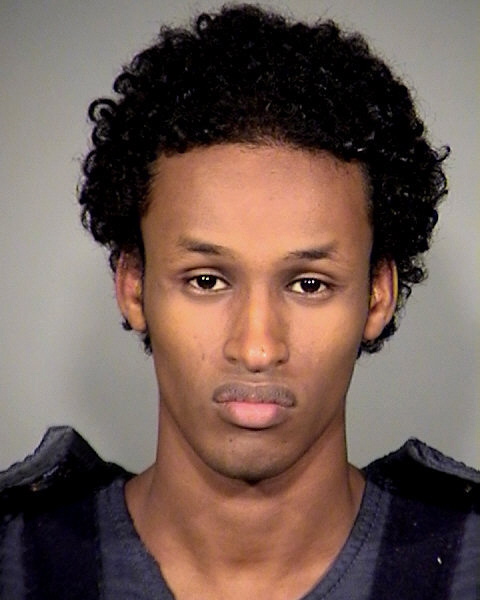PORTLAND — FBI agents set a complicated psychological trap for an Oregon teenager by rewarding his compliance and praising his intellect on the way to luring him into a terrorism plot, a psychologist testified Tuesday as part of the teenager’s defense.
Elizabeth Cauffman, a professor of psychology at the University of California-Irvine, testified that recordings of two undercover FBI agents posing as al-Qaida recruiters show subtle but clear attempts to convince Mohamed Mohamud that the path to violence was the correct one.
The testimony came in the second day of testimony from defense witnesses in Mohamud’s federal trial. He is accused of attempting to detonate a weapon of mass destruction at a Portland Christmas tree-lighting ceremony in November 2010. The bomb was a fake provided by the FBI.
Mohamud’s defense team is attempting to reframe evidence already presented by prosecutors in a new light. Prosecutors say recordings of Mohamud agreeing to buy toggle switches and barrels to carry explosives are evidence that he was a willing participant in the plot. But Cauffman said that Mohamud had been conditioned by a system of reward, praise and prodding by the agents to agree with anything they said, including buying supposed bomb-making materials.
“They gave him the sense (that) they were authority figures,” Cauffman said. “Adolescents don’t want to seem like wimps.”
Mohamud’s brain likely wasn’t fully developed at age 17, when he began attempts to reach al-Qaida affiliates and drew the attention of the FBI, Cauffman testified. By age 18, Mohamud had fully-formed intellectual capabilities but was still emotionally immature, Cauffman said, easily manipulated and prone to risky decisions.
Mohamud’s age makes him among the youngest ever targeted by post-9/11 stings carried out by the FBI on suspected terrorists. It is also central to his defense team’s contention that he was entrapped. He is now 21 years old.
Cauffman has studied juvenile crime and the neuroscience behind it, including delays or damage to developing prefrontal cortexes, the brain’s rational decision-maker.
Cauffman didn’t interview Mohamud and limited her review of the case materials to his recorded interactions with the agents in person, on the phone and in emails, something Assistant U.S. Attorney Pam Holsinger raised in her cross-examination.
In its case — which concluded Monday — the prosecution played several recordings of undercover agents “Youssef” and “Hussein” telling Mohamud he could leave the plot at any time, and that they were not pressuring him. But those very words, Cauffman said Tuesday, were intended to have the exact opposite effect.
“They’ve given him an out, but it’s not really an out,” Cauffman said. “Because if he doesn’t do it, he’s a chicken.”



